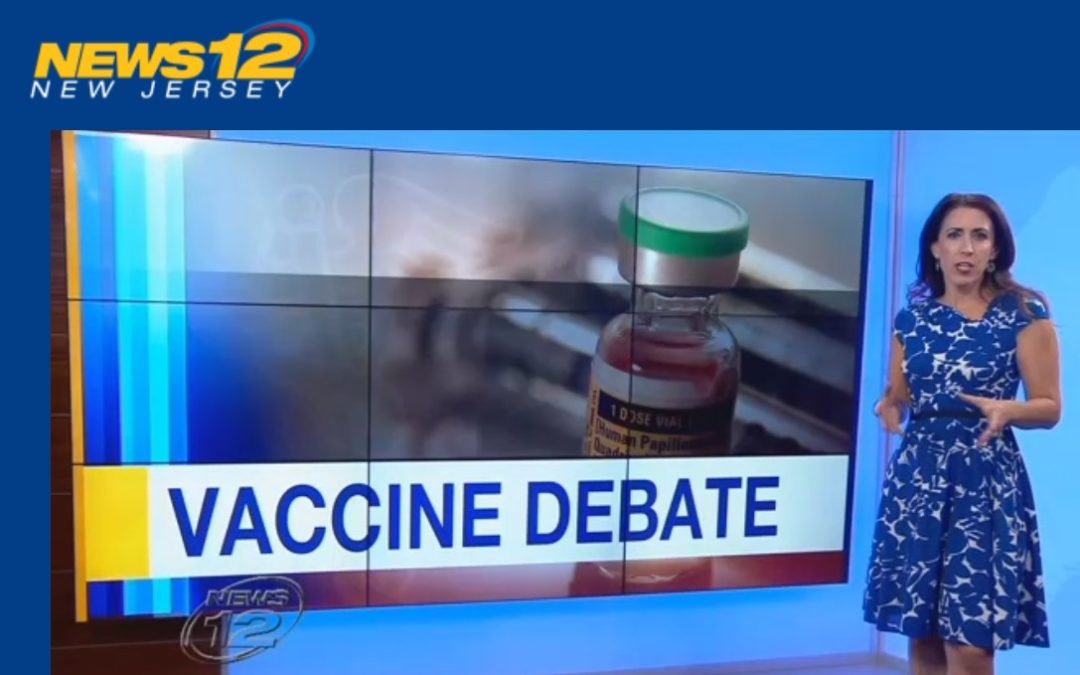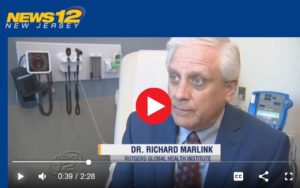For a television news broadcast about vaccination, News 12 New Jersey reporter Marci Rubin spoke with Rutgers experts—Richard Marlink, MD, director of Rutgers Global Health Institute, and Tanaya Bhowmick, MD, assistant professor of medicine, infectious diseases, Rutgers Robert Wood Johnson Medical School—about the safety, efficacy, and functionality of vaccines. Watch the segment that News 12 aired on July 19.
In the News 12 segment, Marlink says, “Vaccines have literally saved millions and millions of lives.” He also offers perspective on the rigor that’s involved with referencing something as “scientifically proven.”
Marlink, who has conducted significant HIV/AIDS-related work in Africa and the U.S. for more than 30 years, understands the gravity of infectious disease outbreaks:
“Perhaps 1 out of 5 kids [in regions of Africa] don’t even have access to vaccines, so we see diseases there that have been eradicated here, like tetanus or rubella. We still see those [diseases] in parts of Africa where—if we could vaccinate all kids—we could get rid of those diseases there, too.”
Bhowmick, in the full video interview, describes how vaccines work and the concept of herd immunity, which develops when a sufficiently high proportion of individuals are immune to a disease, especially through vaccination:
“In pockets where they don’t have the vaccines, [the infection] will spread rapidly. One person gets infected, and it ends up spreading quickly—whereas, if it were in a community where most of the people are vaccinated, it wouldn’t become an epidemic, it would just be limited to that one or two people.”
Bhowmick says that live attenuated vaccines create in the human body a “memory bank” to call upon for defending against viruses and bacteria. She also discusses the medical practice of “cocooning,” which is the strategy of protecting infants from infectious diseases, especially pertussis, by vaccinating those in close contact with them.
Watch the “Vaccine Debate” segment at newjersey.news12.com, and check out the full interviews.


